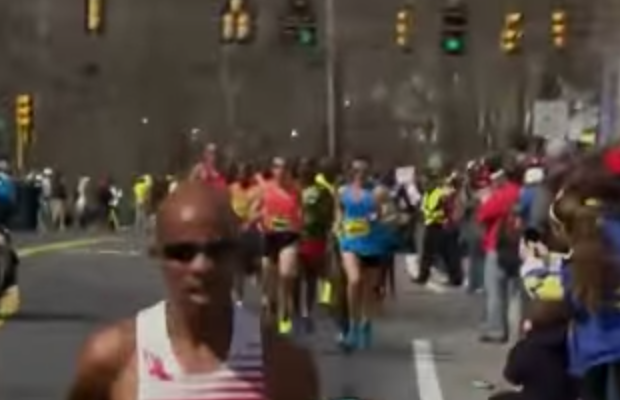
Barely one day after the stunning Boston Marathon victory for 38-year-old American runner Meb Keflezighi, a major talking point has been exactly how he managed to get away from such a deep field of competition. After all, prior to yesterday, East African dominance in the men’s classification had been broken in Boston only twice since 1988 (and neither of those times was it an American). Ethiopian and Kenyan runners seemed to have first place locked up, denying American challengers with ease. Yet it all evaporated on the hills of Newton and streets of Boston, as Keflezighi motored away early and held off the late charge.
In retrospect, a story has emerged that there was a little more to it than merely Meb’s moxie. As Robert Johnson of LetsRun.com explained in a fantastic piece charting the behind-the-scenes work by the USA runners, there was an organized attempt to help Keflezighi, and inhibit his competition.
Ryan Hall, the highest profile American marathoner (at least before yesterday), orchestrated the hindering. Following Keflezighi’s initiation of a breakaway, Hall got to the front of the chase group (where most of the high profile runners were) and deployed a tactic that cycling fans might be familiar with: He stalled. Instead of pacing the group back into sight of Keflezighi (who was partnering with fellow American Josphat Boit in the lead), Hall kept them at a deliberate pace.
Another American, Nick Arciniaga, explained what Hall was up to:
Very clever, though it still doesn’t entirely explain why the rest of the world class group didn’t chase down Keflezighi. Had they chosen to chase Keflezighi, they very well could have. It’s not as if the Americans blocked the road. Anyone could have gone around them and picked up the pace, but as Arciniaga says, they simply didn’t.
So credit Hall for the heads up move, and strategic ploy, but shame on the top non-American contenders for being overconfident. They simply didn’t allow for the possibility that Keflezighi could stay away for that long, and that he wouldn’t crack in the attempt.
Hall and the rest of the Americans might have made the difference in the end, considering that Wilson Chebet (who was one of the contenders in Hall’s group initially) closed to within seconds of Keflezighi at the end. Every foot counted in the 26.2-mile marathon, and Chebet simply ran out of them in the end. Ultimately, American teamwork proved pivotal on a historic day in Boston.
